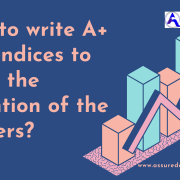Unit learning outcomes
1. Demonstrate the following knowledge and understanding of the contribution socially constructed notions of “childhood development” and “life-course progression” make to the conceptualisation of disabled children.
2. Demonstrate the following skills and abilities: Analysis of the impact of dominant models and impairment on the conceptualisation and treatment of disabled children.
What am I required to do in this assignment?
Individually, you will develop a PowerPoint Presentation using a case study to analyse the way concepts of childhood, family, disability and impairment impact upon the way disabled children are treated and conceptualised.
You are to submit the PowerPoint presentation to grade centre and you also have to submit detailed notes with the
PowerPoint slides. These notes must reflect what you would have spoken had you been standing in front of an audience. The notes should be structured according to your slides i.e., each note of each slide should reflect what you would say in the oral presentation if you were presenting each slide. The notes should be presented in the notes section of the Power-Point. Please see the unit’ breo ‘Assessment& Feedback’ shell for a video on how to add notes on PowerPoint. If you are unable to add notes in the notes section of a PowerPoint, you can put a ‘notes slide’ after each presentation slide. For example, slide 1 presentation slide, slide 2 notes narrating what you would have said about slide 1 presentation slide, slide 3 presentation slide, slide 4 notes speaking to slide 3 and so on.
What do I need to do to pass? (Threshold Expectations from UIF) In order to pass the assignment, you will need to:
Select, research and analyse a specific case study scenario relating to disabled children and young people.
Discuss the ways in which current service provision serves to challenge or reinforce dominant constructions of
children/young people and their families.
Assess the role of the state and positioning of the family in relation to disabled children/young people.











